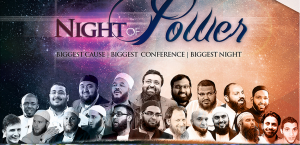Orignally a comment by jesse on Back to reporter school.
Working journalist here.
I’ll say this kind of stuff is needed because, as quixote noted, the issue is really that a lot of communications people don’t do science in their coursework, except for the minimum.
More to the point, the allergy to science starts earlier than university, usually, and comes from the fact that in the US the requirements for high school historically went: 4 years of English, 3 history, 2 math and 2 science as the minimum to graduate. This has changed a bit, but it reflects some rather old-fashioned needs. (It used to be that a lot of engineering-related stuff got covered in shop, before those classes turned into dumping grounds). Most communications majors weren’t interested in science to begin with.
Anyhow, the requirements for journalists were historically to do with how to find information. I know that sounds odd in the Internet age, but we learned a lot about what documents to go for and where to get them, how to file a FOIA req and who to ask and how to parse stuff in situations where you have to assume that everyone is lying to you or is telling you something for self-interested reasons. (Also, most of the good stuff isn’t online).
But finding information is one thing; knowing what to do with it is another. That’s a tougher skill to teach and learn. (And it’s why I and other old-er school people resist certain technologies a bit. Knowledge, information and wisdom are not synonyms).
This is some of the source of the false balance problem. I mentioned this once to a gathering of science writers — I asked how many people had ever covered other beats. Most had not. I told them that the big difference in reporting on science, and why I like it, is I no longer have to assume that everyone is a liar. In politics or covering cops that’s a kind of undercurrent you have to deal with. (A sense of humor about it helps, but if you ever wondered why many of us sound jaded, this is why). Most reporters for big mainstream outlets are generalists, and you get told “Hey, cover this!” and you say “You know, I don’t know anything about…” and you get told “DO it.”
So when you come at it after covering stuff in which there is no peer review, where all you have is say, a budget document and three politicians all telling you it means different things, or when you cover cops and have to assume that nobody is telling you the truth, that infects what you do when you cover the sciences. I am not saying we assume scientists are liars (consciously, anyway) — just that you get used to certain forms and mental habits out of necessity even when they aren’t applicable to some situations.
I have a science background, so I was able to get away from that a bit. But more than one editor told me to get “an opposing view” on some stories. I had to explain that no, science doesn’t work that way…
On the bright side most reporters do this because we love learning, which is why people with no knowledge are willing to tackle writing about something. There’s not many other jobs where you can say you know something now that you didn’t earlier in the day. And you get to tell everyone about it. So this is a group that will be very receptive I think.
Learning how science actually works is a big step in the right direction. Many reporters don’t, or have only a cursory knowledge. So kudos to the BBC.
(This is a syndicated post. Read the original at FreeThoughtBlogs.)






















